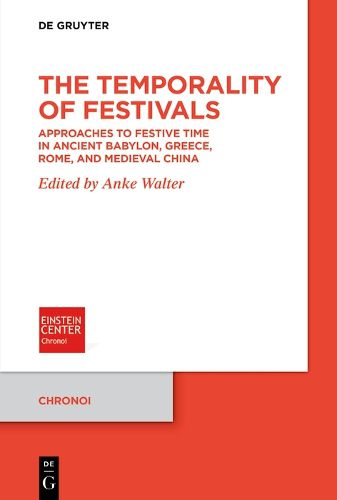Readings Newsletter
Become a Readings Member to make your shopping experience even easier.
Sign in or sign up for free!
You’re not far away from qualifying for FREE standard shipping within Australia
You’ve qualified for FREE standard shipping within Australia
The cart is loading…






How can time become festive? How do festivals manage to make time 'special', to mark out a certain day or days, to distinguish them from 'normal', everyday time, and to fill them with meaning? And how can we reconstruct what festive time looked like in the past and what people thought about it?
While a lot of research has been done on festivals from the point of view of several scholarly disciplines, the specific temporality of festivals has not yet attracted sufficient attention. In this volume, scholars from different fields provide answers to the questions raised above, based on a fresh analysis of astronomical documents, calendars, and literary texts. Cultures as diverse as ancient Babylon, Greece and Rome, and medieval China all share a sense of calendrically recurring festive time as something special that needs to be carefully mapped out and preserved, often with great sophistication, and that gives us precious insights into the broader religious, political, and social dimensions of time within past cultures.
$9.00 standard shipping within Australia
FREE standard shipping within Australia for orders over $100.00
Express & International shipping calculated at checkout
How can time become festive? How do festivals manage to make time 'special', to mark out a certain day or days, to distinguish them from 'normal', everyday time, and to fill them with meaning? And how can we reconstruct what festive time looked like in the past and what people thought about it?
While a lot of research has been done on festivals from the point of view of several scholarly disciplines, the specific temporality of festivals has not yet attracted sufficient attention. In this volume, scholars from different fields provide answers to the questions raised above, based on a fresh analysis of astronomical documents, calendars, and literary texts. Cultures as diverse as ancient Babylon, Greece and Rome, and medieval China all share a sense of calendrically recurring festive time as something special that needs to be carefully mapped out and preserved, often with great sophistication, and that gives us precious insights into the broader religious, political, and social dimensions of time within past cultures.